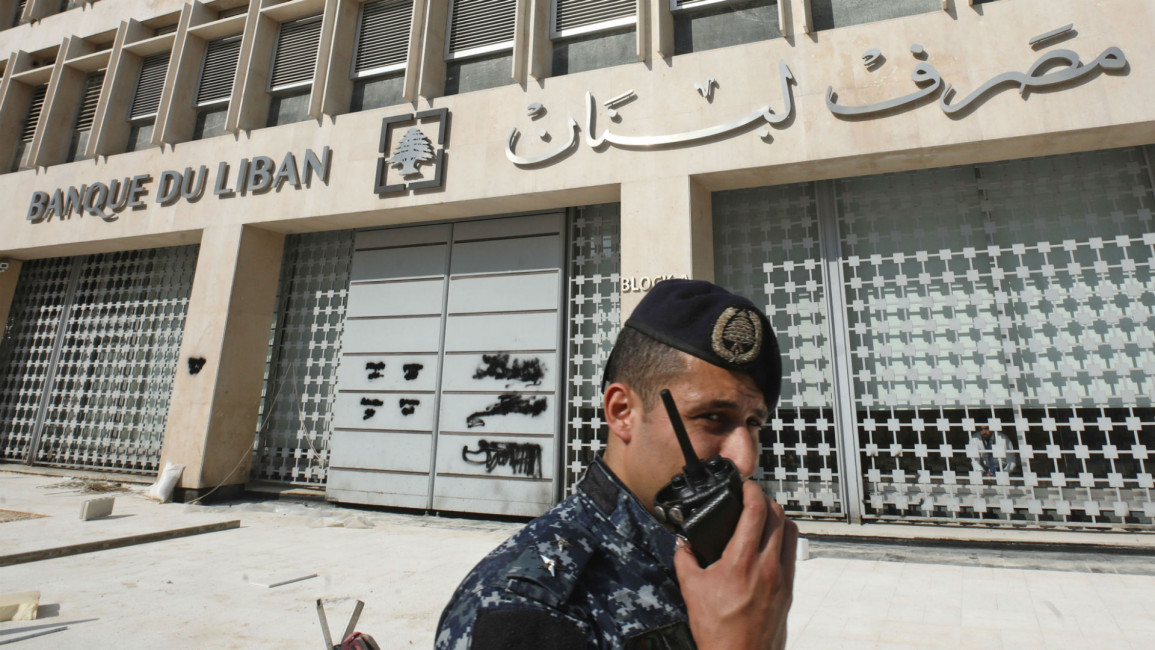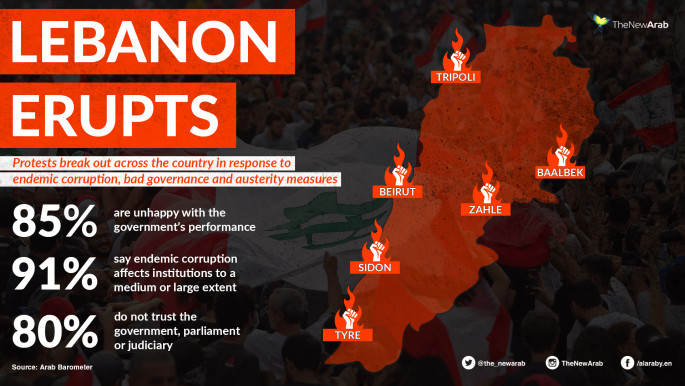Lebanon bank staff return to work after week-long strike
Lebanon bank staff return to work after week-long strike
Bank workers have returned to work in Lebanon after going on strike over new regulations.
2 min read
Banks have mostly been closed since protests began in mid-October [Getty]
Lebanon's bank staff resumed work Tuesday after a week-long strike due to increased security and new regulations that officially limited withdrawals and dollar transfers.
Banks have been at the center of anti-government protests, as demonstrators accused them of corruption and mismanagement.
They had closed with the eruption of protests in mid-October, opening only for a week.
Depositors then rushed in to withdraw money, but banks had begun imposing informal capital controls that angered many clients and added to the turmoil, prompting the employees' strike.
On Monday, the Banks Association declared formal controls, limiting withdrawals to 1,000 US dollars weekly, and transfers abroad to "urgent matters".
"These measures are temporary in order to facilitate the business of the people, this is pressure by the United States of America and it is not related to the banks or the Lebanese central bank," a local business owner told The Associated Press.
It is foreign pressure on the banks and on the people. In God's will, within a week or two weeks the problem will be solved."
Since the protests erupted on 17 October, banks have been closed for most of the time, only reopening this month but imposing strict controls on international transfers and caps on hard currency withdrawals.
However, each commercial bank had been setting its own policy.
On Friday, S&P Global Ratings downgraded Lebanon's sovereign debt, saying a twin political and economic crisis had hit investor confidence and constrained the government's funding model, which relies on deposit inflows.
Moody's rating agency downgraded Lebanon's sovereign debt earlier this month.
Even before the protests began, economic growth in Lebanon had plummeted in the wake of repeated political deadlocks in recent years, compounded by the war in neighbouring Syria.
Public debt stood at more than $86 billion, or higher than 150 percent of GDP, according to the finance ministry.
The World Bank says around a third of Lebanese live in poverty and has warned the struggling economy could further deteriorate if a new cabinet is not formed quickly - a tough challenge, in a country where administrations must maintain a delicate confessional balance.



![President Pezeshkian has denounced Israel's attacks on Lebanon [Getty]](/sites/default/files/styles/image_684x385/public/2173482924.jpeg?h=a5f2f23a&itok=q3evVtko)



 Follow the Middle East's top stories in English at The New Arab on Google News
Follow the Middle East's top stories in English at The New Arab on Google News


